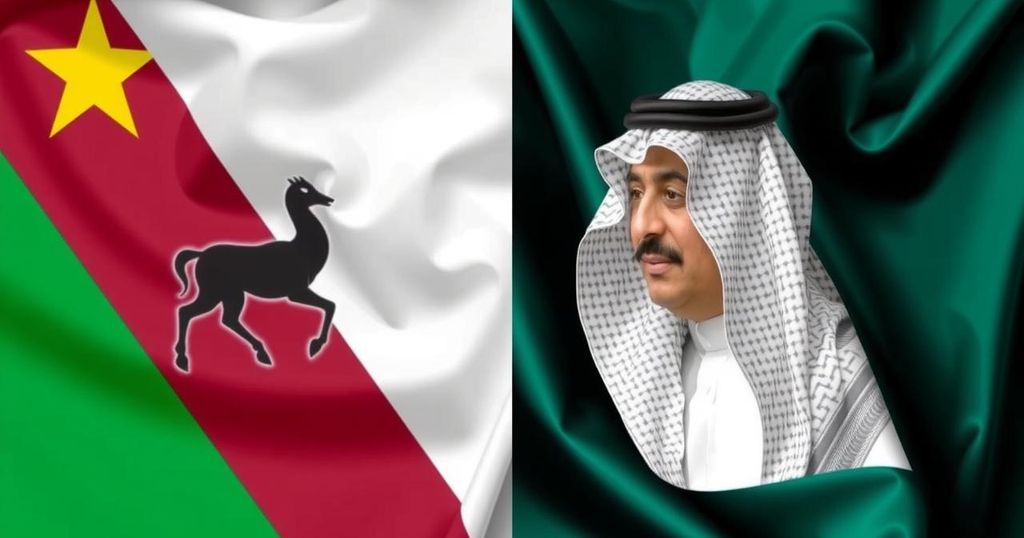Business
AFRICA, AL, ASIA, CGD, DEVELOPMENT, DNE AFRICA, ECONOMIC GROWTH, EUROPE, FINANCE, FRANCE, LUSAKA, MARSHAD, MUSOKOTWA, MUSOKOTWANE, NATIONAL PLANNING, RENEWABLE ENERGY PROJECTS, SAUDI ARABIA, SAUDI FUND FOR DEVELOPMENT, SITUMBEKO MUSOKOTWANE, SUSTAINABLE DEVELOPMENT, ZAMBIA
Marcus Li
0 Comments
Zambia and Saudi Arabia Formalize Debt Restructuring Agreement
Zambia and Saudi Arabia have signed a debt restructuring agreement to reschedule over $130 million of Zambia’s obligations. This agreement, formalized in Lusaka, is part of efforts to promote fiscal sustainability and includes a $35 million loan for healthcare development. It follows previous agreements with France aimed at debt management and economic stability.
Zambia and Saudi Arabia have entered into a significant debt restructuring agreement to reschedule over $130 million of Zambia’s financial obligations to the Arab nation, as reported by DNE Africa. This agreement was formalized on Thursday in Lusaka, signed by Situmbeko Musokotwane, the Zambian Minister of Finance and National Planning, and Sultan bin Abdulrahman Al-Marshad, the Chief Executive Officer of the Saudi Fund for Development.
Minister Musokotwane emphasized that this debt restructuring agreement symbolizes a shared commitment to addressing Zambia’s debt, promoting fiscal sustainability, and encouraging economic progress. He expressed gratitude towards the Saudi Fund for Development and its leadership for their constructive dialogue and collaboration throughout this process. Sultan Al-Marshad underscored that the agreement showcases the continuing developmental partnership between Zambia and Saudi Arabia.
Moreover, alongside the debt restructuring, the two nations also formalized an agreement for a $35 million loan aimed at financing the construction of the King Salman Specialized Hospital in Zambia. This deal with Saudi Arabia follows a previous arrangement Zambia made with France on December 8, intended to restructure the debt owed to the European nation. It aligns with the goals of a program supported by the International Monetary Fund, aiming to assist Zambia in achieving a sustainable debt trajectory.
Additionally, France has provided Zambia with budgetary aid amounting to €16 million over two years (2023-2024) to support emergency food initiatives responding to drought conditions exacerbated by the El Niño phenomenon. Zambia previously underwent a debt write-off in 2005 under the Heavily Indebted Poor Countries initiative, which attracted considerable investment, notably from Chinese state-owned banks, aimed at economic enhancement and diversification.
However, this investment surge inevitably led to increased debt levels and interest payments, culminating in Zambia’s sovereign default in December 2020. The G20 Common Framework’s 2020-2024 sovereign debt restructuring process involved extended negotiations that severely hampered Zambia’s economic progress for approximately three and a half years. Reports from the Center for Global Development highlight the frailties of the Common Framework and suggest that reform could substantially aid low-income countries experiencing debt distress in future situations.
The topic of debt restructuring is crucial for Zambia, particularly as it navigates complex economic challenges and seeks to stabilize its financial commitments. With a history of substantial foreign investment and subsequent debt increases, Zambia’s financial landscape is characterized by a delicate balance between economic growth and debt sustainability. Recent agreements with international partners like Saudi Arabia and France reflect ongoing efforts to restructure existing debts, thereby fostering a more robust fiscal environment.
In conclusion, Zambia’s recent debt restructuring agreement with Saudi Arabia marks a pivotal step in managing its financial obligations, alongside a complementary loan for healthcare infrastructure. This partnership, alongside previous agreements with France, demonstrates Zambia’s strategic approach to achieving economic stability and sustainability. Moving forward, the lessons learned from these negotiations may inform future debt restructuring efforts and policies aimed at supporting developing nations in managing debt distress effectively.
Original Source: www.dailynewsegypt.com




Post Comment